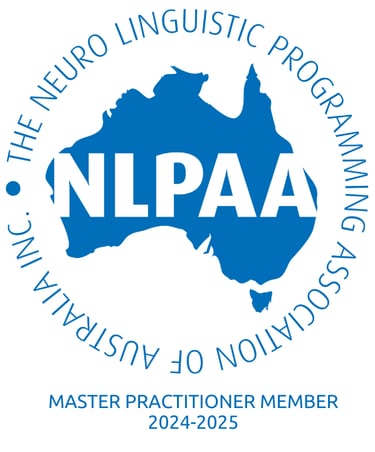MIND food
This blog explores the growing evidence linking nutrition to brain health and Alzheimer’s risk. Learn how healthy fats, key vitamins, and plant compounds may protect memory and support cognitive function—especially as we age. Plus, discover the surprising role of short-chain and medium-chain fats like those found in fibre-rich foods and coconut oil.
6/2/20253 min read


Can What You Eat Help Protect Your Brain? Nutrition’s Role in Alzheimer’s Risk
Alzheimer’s disease is something many of us worry about — especially if we’ve seen loved ones affected. It’s the most common form of dementia, slowly stealing memory, thinking skills and independence. However, here’s something hopeful: new research is showing that what we eat plays a significant role in reducing the risk or slowing the progression of Alzheimer’s.
A recent study by researchers İlhan, Erden, and Erbaş highlights the powerful connection between nutrition and brain health—and it’s worth paying attention to.
How Does Alzheimer’s Develop?
Before we dive into the food side of things, it helps to understand what’s happening in the brain. Alzheimer’s involves things like:
Inflammation in the brain
Buildup of harmful proteins (like amyloid-beta)
Damage from oxidative stress (kind of like rust on your cells)
Problems with memory and thinking as a result
Here’s the exciting part: certain nutrients and plant compounds actually help counter these effects.
Nutrients That Support Brain Health
Let’s take a look at some of the key nutrients the research points to:
🧠 Omega-3 Fatty Acids
Found in oily fish (like salmon or sardines), flaxseeds and walnuts — these healthy fats support brain function and help reduce inflammation.
🧠 B Vitamins (especially B1, B2, B3, B12 and folate)
These are involved in energy metabolism and nervous system health. They may help reduce brain inflammation and slow down the changes linked to Alzheimer’s.
🧠 Vitamin D
We mostly think of it for bone health, but it’s also important for brain function. Low vitamin D levels are linked with a higher risk of cognitive decline.
🧠 Antioxidants (like Vitamins C and E)
These help protect brain cells from oxidative stress. You’ll find them in colourful fruits and veggies, nuts and seeds.
The Role of Fats – Especially the Right Kinds
Not all fats are created equal when it comes to brain health. In fact, your brain is about 60% fat so it makes sense that the fats you eat matter.
🥑 Short-Chain Fatty Acids (SCFAs)
These are produced when gut bacteria ferment fibre from plant foods. SCFAs like butyrate may help reduce brain inflammation and support a healthy gut-brain connection. The best news on this is that Butyrate is Butter!
🥥 Medium-Chain Triglycerides (MCTs)
These fats, found in coconut oil and MCT oil, are quickly absorbed and turned into ketones—an alternative fuel source for the brain. Some studies suggest MCTs may improve brain energy use and memory in people at risk for Alzheimer’s.
Incorporating a mix of healthy fats, like extra virgin olive oil, nuts, fatty fish and fibre-rich foods that support gut-health can be a smart move for long-term brain health.
Plant-Based Power: Natural Compounds That Show Promise
The study also explored a range of natural food compounds with brain-boosting potential:
🌰 Walnuts – Full of healthy fats and antioxidants that help protect the brain.
🍇 Raspberry Ketone – May help reduce inflammation and oxidative stress.
🌴 Date Seed Extract – May help break down the sticky amyloid proteins.
☕ Caffeine – In moderate amounts (like in coffee or green tea), it might help reduce brain inflammation and support memory.
What Does This Mean For You?
While there’s no magic food to prevent Alzheimer’s, this research adds to growing evidence that food really can be medicine. Eating a nutrient-dense, whole food diet with a focus on colourful veg, healthy fats, fish, nuts, and whole grains can support long-term brain health.
Each person's nutritional needs are unique so the best way to know what to eat is to consult a nutritionist who can tailor an eating lifestyle that suits you.
Final Thoughts
Alzheimer’s can feel like an overwhelming topic, but the idea that our daily food choices could play a protective role is empowering. Small, consistent changes in the way we eat might help keep our brains sharper, longer.
Whether you're looking to support your own memory or looking after a loved one, it's never too early (or too late) to nourish your brain.
Curious about how to personalise this approach for yourself or your family?
💬 Book a free discovery call and let's chat about how nutrition, mindset and lifestyle can work together to support your brain and body for the long term.
Phone/WhatsApp
+64 21 020 29366
Contact
Hours
Tuesday to Saturday 9am to 6pm
Please get in touch to enquire about alternative timing
Professional Affiliations
Legal Information
At Wellness Your Way Ltd, we value transparency and integrity in all that we do. Our legal policies outline how we protect your privacy, manage your information and deliver services with care and professionalism.
Terms and Conditions: Explains how our services operate, including payments, cancellations, digital resources and client agreements.
Privacy Policy: Details how we collect, store and protect your personal information in accordance with New Zealand privacy standards.
Disclaimer: Clarifies that our wellness, nutrition and NLP coaching services are for educational and lifestyle purposes only and are not a substitute for medical care.
© 2025 Wellness Your Way Ltd. Wellness Your Way® and the Wellness Your Way logo are registered trademarks of Wellness Your Way Ltd. All rights reserved.






